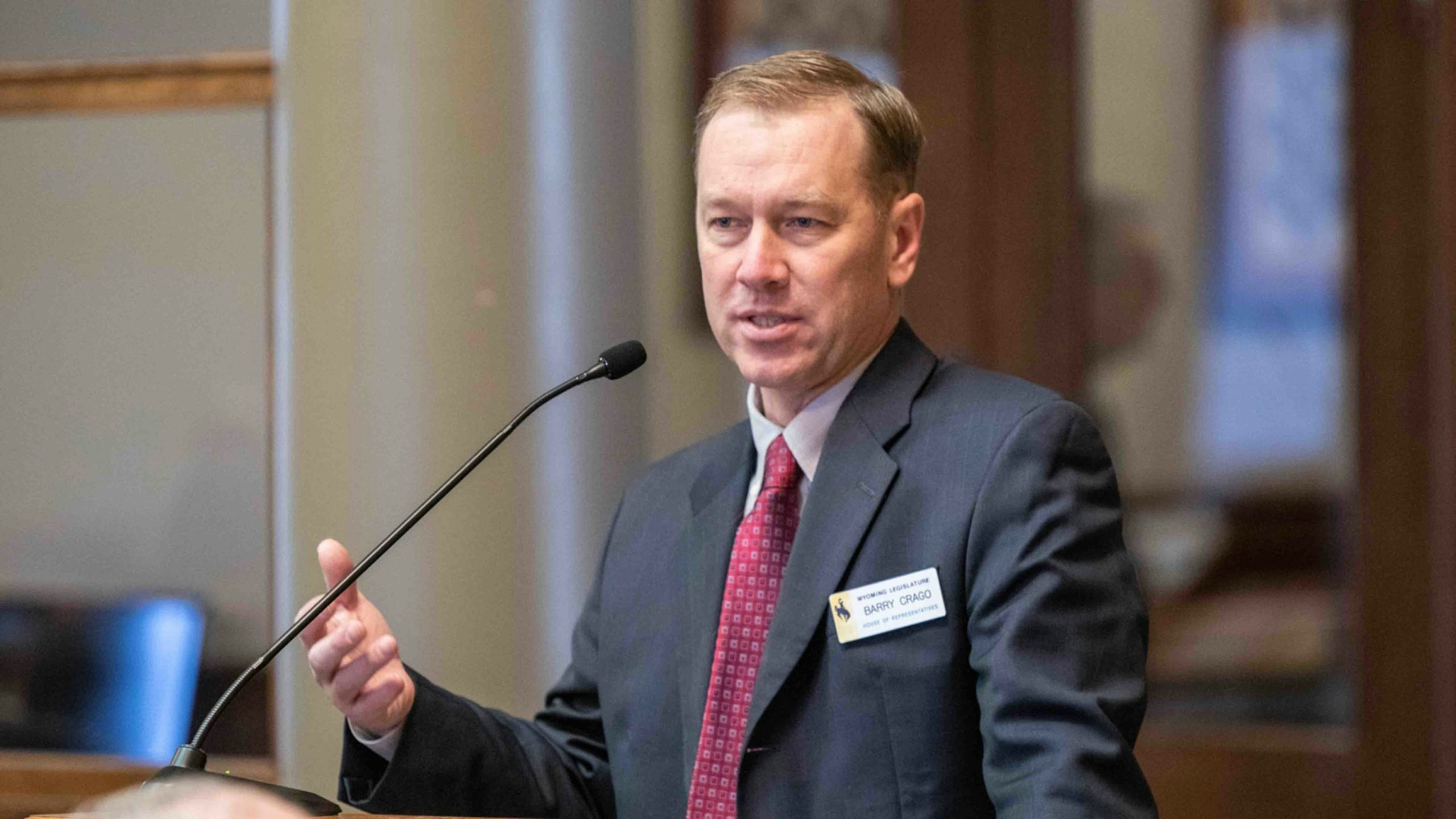A bill that would make the consumption of methamphetamine or illegal opiates by pregnant women a felony has been approved in its initial review by the full House of Representatives.
House Bill 85 will close what sponsor Rep. Ember Oakley, R-Riverton, described as a gap in state child endangerment laws.
“(It should) correct what I believe is an unintentional leaving-out of this conduct of child endangering,” Oakley said during debate on the bill Friday. “Because our child-endangering statutes of course already have anything that would affect or hurt the life of, or endanger the child in anyway.”
Oakley had noted one day prior in a Thursday meeting of the House Judiciary Committee that it is a felony to have methamphetamine near a child or to give a child meth.
“But (using while pregnant) is arguably the most dangerous behavior of all those,” she said.
Opponents
The bill was approved by the committee for full House debate despite opposition from the lobbyist for the Northern Arapaho Tribe and a woman who said she was a recovering addict who had been using while pregnant, among other opponents.
Wyoming Department of Health officials also pushed back slightly on the bill, saying it may cause addicted mothers to avoid seeking mental health treatment for fear of prosecution.
However, WDH acting director Stefan Johansson said officially his agency has no position on the bill.
More Abortions?
“Do you think that this would incentivize a pregnant woman to get an abortion to avoid getting a felony?” Rep. Mike Yin, D-Jackson, asked during the committee meeting.
“If a woman is actively abusing and using meth when they’re pregnant,” answered Oakley, “I don’t think they’d be the ones proactively going out of the state of Wyoming to get an abortion.”
But Michele Foust, who was charged with child endangerment nearly 20 years ago in Lander, Wyoming, disagreed. The charges had been based on reports that both Foust and her newborn baby had tested positive for meth.
“Absolutely,” Foust said in answer to Yin’s question. “I think if women were going to face severe penalties and be put in prison because they have an addiction problem, I personally think the chances (of an abortion) are higher.”
Now-retired Fremont County District Court Judge Norm Young dropped the child endangerment charge against Foust in 2005, writing that the child endangerment laws pertaining to meth exposure did not apply to fetuses.
“I’m not saying I think it’s right or wrong,” Foust said Thursday, “but the law is the law – and a child is birth to 18.” She also called the bill “kind of sexist,” because it only would impact women, and she worried it would infringe “abortion rights and freedom of choice.”
Tribal Pushback, Treatment
The Northern Arapaho Tribe opposed the bill through its lobbyist, Travis McNiven.
“There’s concern (of) more home births, less prenatal treatment,” said McNiven.
He added HB85 would provide more “stick” with felony charges and less “carrot,” or incentives to seek treatment.
Rep. Andi LeBeau, D-Ethete, who represents a roughly 63% American Indian legislative district centered on the Wind River Indian Reservation, echoed McNiven’s sentiments.
She said tribal care systems “need help; we need mental help; we need substance abuse help,” and “better collaboration with programs” on the Reservation and with the towns surrounding it, such as Riverton and Lander.
Floor Debate
The need for treatment was a concern that surfaced again on Friday during debate on the House floor, when Rep. Karlee Provenza, D-Laramie, said the policy shift would yield “worse outcomes” because mothers may be afraid to seek medical care or treatment during pregnancy for fear of being charged with a felony.
“The amendment that needs to be written for this bill probably wouldn’t be germane for it because the solution is to put this in public health – because this is a public health crisis,” said Provenza. “This is not something that the justice system can fix with punitive measures.”
The bill endured criticism by a House Republican as well, Rep. Bob Wharff of Evanston, who worried it would “victimize” women with “addictive behaviors” and increase self-abortions.
But Rep. Barry Crago, R-Buffalo, a prosecuting attorney, backed the bill, saying that he didn’t see it strictly as a punitive measure, but as a way for the state to “get help to mothers that need it,” presumably using the longer timeline and probation outcomes of felony-level charges.
Rep. Sue Wilson, R-Cheyenne, made a similar point and referenced an acquaintance who performed better under government urinalysis requirements.
Probation
Oakley countered Provenza’s concerns about possibly sending pregnant women to prison, saying that even in felony-level cases and with the exception of murder, probation is “the default,” and judges are required by law to make specific findings before sending someone to prison instead.
“There’s (been) no discussion (today) about what’s good for the child,” she said. “They say it’s simply punitive. No. We’re trying to gain compliance so that the child has a chance, the child can be safe, the child can be drug free; the child can live in a drug free home.”
Oakley insisted that treatment options are available for women charged with child endangerment, and said that if the Department of Family Services or mental health structures are overwhelmed as a result of this bill becoming law, it would only affirm that “this (behavior) is a very real danger.”
The bill must be approved in two more readings in the House before heading to the Senate for debate.





